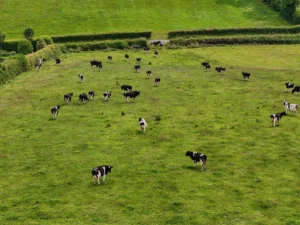
Cattle, greenhouse gases and the case for better methane metrics
Why the global warming potential of methane emissions from cattle production needs a closer look
Unlike most races, the World Without Cows Global Run doesn’t start with a stopwatch. It starts with one bold mission: to elevate agriculture through science-led storytelling, advocacy and education — by logging 25,000 miles together, the distance of one full lap around the planet.
Taking place Friday, June 27 through Sunday, June 29, this worldwide challenge invites participants to help share the message of World Without Cows and support Planet of Plenty initiatives that keep the conversation going — simply by showing up and running.
The World Without Cows Global Run gives runners an additional reason to celebrate the role animal proteins like dairy play — not just in nutrition, but in the broader story of how we fuel the future.
Lace up and join a global movement to put purpose behind every step.
To understand the scale of this challenge, consider this: there are more than 1.5 billion cows on the planet today. In India alone, there are enough cows to circle the Earth 18 times, if lined up nose to tail. Our goal? Complete just one lap, covering 25,000 miles collectively, to further the dialogue on cows and what could be lost if they disappeared.
So, what would a world without cows look like for runners specifically? It would mean fewer options for the high-quality protein needed to train, recover and perform. Because without foods like meat and dairy, it’s harder to fuel endurance, build strength and stay resilient.



Endurance running places high demands on the body. It breaks down muscle fibers, taxes the immune system and speeds up nutrient turnover. Protein helps the body repair, rebuild and adapt to that stress. And the kind of protein consumed makes a measurable difference.
Why do runners benefit from animal-sourced proteins, like meat and milk?
Animal-based proteins, such as meat, eggs, dairy and fish, are known as “complete” proteins because they contain all nine essential amino acids your body needs to build and repair muscle. Research shows that consuming high-quality, complete proteins more effectively stimulates muscle protein synthesis than consuming only isolated amino acids or incomplete plant sources.
Leucine is a branched-chain amino acid (BCAA) that signals your muscles to begin the recovery process after a workout. Animal proteins have higher leucine concentrations per gram than most plant proteins, which makes them more effective in activating recovery pathways after endurance activities, such as running.
Animal proteins tend to be more bioavailable than plant sources, meaning your body absorbs and uses them more efficiently when you need to bounce back quickly. For example, the Protein Digestibility Corrected Amino Acid Score (PDCAAS) for beef is 0.92, compared to 0.75 for black beans. This higher digestibility means that animal proteins can more effectively support muscle repair and recovery after intense training sessions.
Training hard can stress your immune system. Animal proteins also provide nutrients like iron, zinc and B12 that help keep it strong. One trial found that participants on a high-animal-protein diet showed better immune-inflammatory responses than those on a high-plant-protein diet, indicating that animal proteins can better support immune function during physical stress.
A 2021 meta-analysis of 18 randomized controlled trials found that animal protein was more effective than plant protein in supporting gains in lean mass — especially in younger adults. For runners, that means better muscle preservation during heavy training and more support for strength over time.
It is possible to meet your protein needs on a plant-based diet, but it takes more effort. Most plant proteins are missing one or more essential amino acids and aren’t as easy for the body to digest. That means athletes often need to eat larger amounts, combine different foods (like beans and rice), or use fortified products to get the same results.
While plant proteins can support performance and recovery, they usually need to be consumed in greater volume to match animal protein. One study found athletes had to take in nearly 60 grams of rice protein to get the same muscle-building effect as just 40 grams of whey, a fast-digesting, high-quality protein naturally found in milk.
With the World Without Cows Global Run, we’re running not to raise miles, but to raise awareness about the importance of building a more sustainable farming future. And just like endurance training, advancing our global food systems requires ongoing effort, adaptation and strength. Runners don’t improve by cutting the essentials. They improve by fueling smarter and recovering better. The same goes for agriculture.
The answer isn’t removing cows from the equation. It’s in improving the systems we rely on to raise them, so that farmers can nourish more people, more efficiently, using fewer resources. Now that’s a race worth running.
Click here to learn more about the World Without Cows Global Run — and register to participate. All proceeds support Planet of Plenty’s mission to advance agriculture through science-led storytelling, advocacy and education.

Why the global warming potential of methane emissions from cattle production needs a closer look
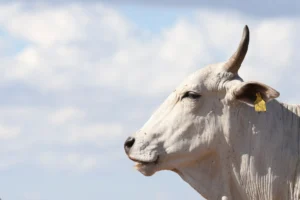
At COP30, the world’s eyes are on Brazil, and the cattle ranchers leading a global transformation.
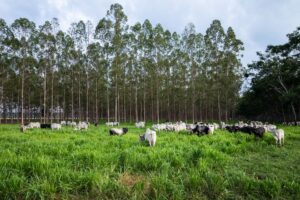
Restoring 40 million hectares of pasture could feed billions and ease pressure on the Amazon. Is the world paying attention?
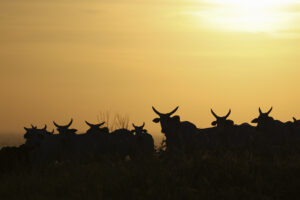
New mini-doc explores deforestation, food security and the Brazilian cattle sector’s path to a more sustainable future
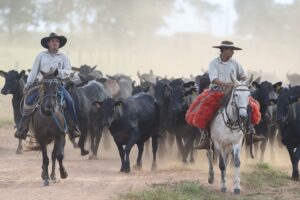
Mention Brazilian beef, and you’re likely to spark discussion about familiar themes: deforestation, emissions and blame. What do we find when we dig deeper? Here are the answers to five top questions about Brazil’s role in protecting the Amazon and feeding the world.
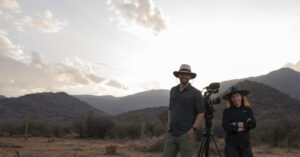
From science to the big screen: Discover how a single question grew into a global journey.
As climate change intensifies and the world’s population continues to grow, the pressure on our global food production system mounts. You can play an active role in shaping a more sustainable planet for future generations. Fill out the form below to learn more about how you can partner with us.
Receive notifications about the release date, new online content and how you can get involved